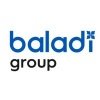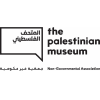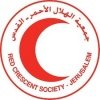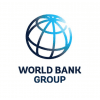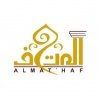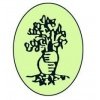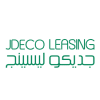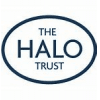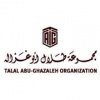End of Project Evaluation
REQUEST FOR CONSULTANCY
Terms of Reference
End of Project Evaluation
BACKGROUND INFORMATION
Action Aid Palestine in cooperation with ActionAid Italy and funded by the Italian Cooperation implementing a three year project entitled: “Empowerment of women and youth in Area C of West Bank and increase in the resilience of vulnerable communities “ in 12 communities in Areas (C) in the Southern West Bank, specifically in Hebron and Bethlehem Governorate; South Hebron: Um Faggarah, Imneizil, Arab al Fureijat, Khashm ad Daraj, Um ad Daraj, Tuba and Khirbet Zanuta and Bethlehem: Khallet Zakariya, Il Ma’sara, Wadi Nis, Umm Salamuna, Jowret ash Sham’a.
The project’s strategy comprises a comprehensive multi-pronged approach, with complementary and mutually reinforcing components to enable communities and particularly women and youth - to analyze, address and challenge the issues they face, through processes which facilitate empowerment, social cohesion and increased resilience.
In its strategic approach, ActionAid acknowledges the importance of participatory community development in the protection of human rights, through human capital’s endorsement and the elimination of any kind of discrimination. ActionAid aims at promoting community mobilization, organizing groups and supporting members’ empowerment, promoting advocacy for human rights and capacity building.
PURPOSE & RATIOANALE
The rationale for this Evaluation is to independently examine the key project’s components and their contributions to enhance Palestinian communities’ resilience to threats associated with the intense political reality and consequently the social and economic situation.
The objective of the evaluation is to assess "the extent to which the project has contributed to enhanced resilience of 12 targeted communities as a result of the socioeconomic empowerment of women and young people, increased skills and capacities of community groups to plan and respond to threats and stresses in Area C communities as well as the impact of solidarity actions taken at local and national levels.”
The evaluation will provide information around the five following areas, with reference to the project proposal, M&E framework and the detailed M&E data collected over the life of the project against the following key criteria:
Relevance: Assess the relevance the project has to the needs of people in targeted communities. Is the approach consistent with development priorities of the Palestinian Government? How relevant were the project strategies in helping women and young people achieve economic empowerment and facilitating their leadership and agency?
Effectiveness and Impact: Analyze changes (planned and unplanned) in the lives of targeted population determine how these changes are valued by communities themselves. How were the most marginalized women and young people reached, and what was the impact of the project activities in enhancing individual and collective awareness and capacity of communities and in amplifying the sense of togetherness in combating threats and stresses. Assess the community-based structures role in enhancing protection and resilience.
Sustainability: Determine how the project makes lasting change as well as the sustainability of the project outputs and outcomes at the level of the project objective. Have lasting links been established with subnational and national actors e.g. government authorities? What evidence is there that women and youth livelihood activities will be sustained beyond the life of the project?
Efficiency: Assess the value of the project as defined by community members, protection committees and other stakeholders identify and value the success of the project.
The evaluation will assess the strengths and weaknesses of the project using the 4 key criteria, project summary sheet and the M&E framework. The findings will be consolidated into a final report.
REPORTING REQUIREMENTS
Delivery of final report providing qualitative and quantitative findings including:
Introduction
Methodology
Summary of the project
Findings:
Recommendations
Case studies demonstrating impact
Use of Info graphs and photos to showcase successes.
The report should be written clearly, and succinctly in an easily understandable language, conclusions should be clear, logical, defensible and reflect clearly from consultations with stakeholders.
METHODOLOGY
The proposed evaluation will utilize a variety of methods to collect and analyse data – using participatory methods in the collection of both quantitative and qualitative data.
The evaluation will include:
-Conduct a preliminary meeting with AAP and agree on the assignment framework. ½ day
- Conduct a desk review (Project proposal, project reports, Results Framework and other relevant documents) 1 day
SCHEDULE
The evaluation shall be conducted between January 15, 2019 to 31 January 2019. Specific level of effort for the consultant will be based on the agreed workplan that will be finalized with the contract.
QUALIFICATIONS OF CONSULTANT
Demonstrated experience in development programmes evaluations, including selecting methodology appropriate for the project’s-specific factors, sampling, applying a mixed methods approach, developing/revising participatory data collection tools, developing data quality protocols and training enumerators
Demonstrated 7 years’ experience in quantitative and qualitative data analysis
Knowledge and experience with Community based structures/groups and their role in community development and protection.
Knowledge and experience developing and/or using participatory research tools
Research experience with knowledge mobilization in collaboration with community
Strong understanding of the social, political and economic situation in Palestine, and the context of south Hebron and south Bethlehem in Area C communities in terms of Israeli policies and in particular those in relation to women’s rights violations.
Fluency in English and Arabic is mandatory
APPLICATION PROCESS
Consultants/firms that meet the requirements should submit expression of interest, which should include the following:
Cover letter including the consultant’s/firm’s suitability for the assignment and current contact information
Curriculum Vitae of lead consultant/s with relevant consultancy experience in MEAL – please make a reference to other consultancy assignments in the same field. This is applicable for both individuals and firms.
At least 2 recommendation letters from former clients that testify the applicant/s experience and performance in conducting projects reviews/evaluations.
Include 1-2 samples of previous evaluation work
Technical offer; respond to the call for consultancy TOR, with specific focus addressing the purpose and objectives of the assignment, methodology to be used and key selection criteria.
Financial offer; detailed budget breakdown based on expected daily rates in USD and initial work plan.
Initial draft of the proposed work plan
Prerequisites for accepting Consultants/firms Financial offer:
Prices must be VAT exempted for official registered firms.
The Consultancy firms have to provide a valid deduct from source certificate along with the offer.
Individual applicants who are not registered at official quarters, prices subject to 5% income tax deduction.
Prices must be in US Dollars valid for 30 days from the closing date of proposal submission.
Prices must include all expenses related to this consultancy e.g. travel, stationary, per diems…etc
Technical and financial price offers must be submitted in a sealed envelope to ActionAid Palestine main office in Hebron no later than 2:00 p.m. on Sunday 6th of January 2019, the address is at Al Salam St, Behind Taj Mahal Hall, Hebron, Palestine.
Due to offices being closed for Christmas and New Year holidays. Interested applicants who have queries on the assignment can call ActionAid office in Hebron at 02-2213137 starting from 2nd of January 2019.







